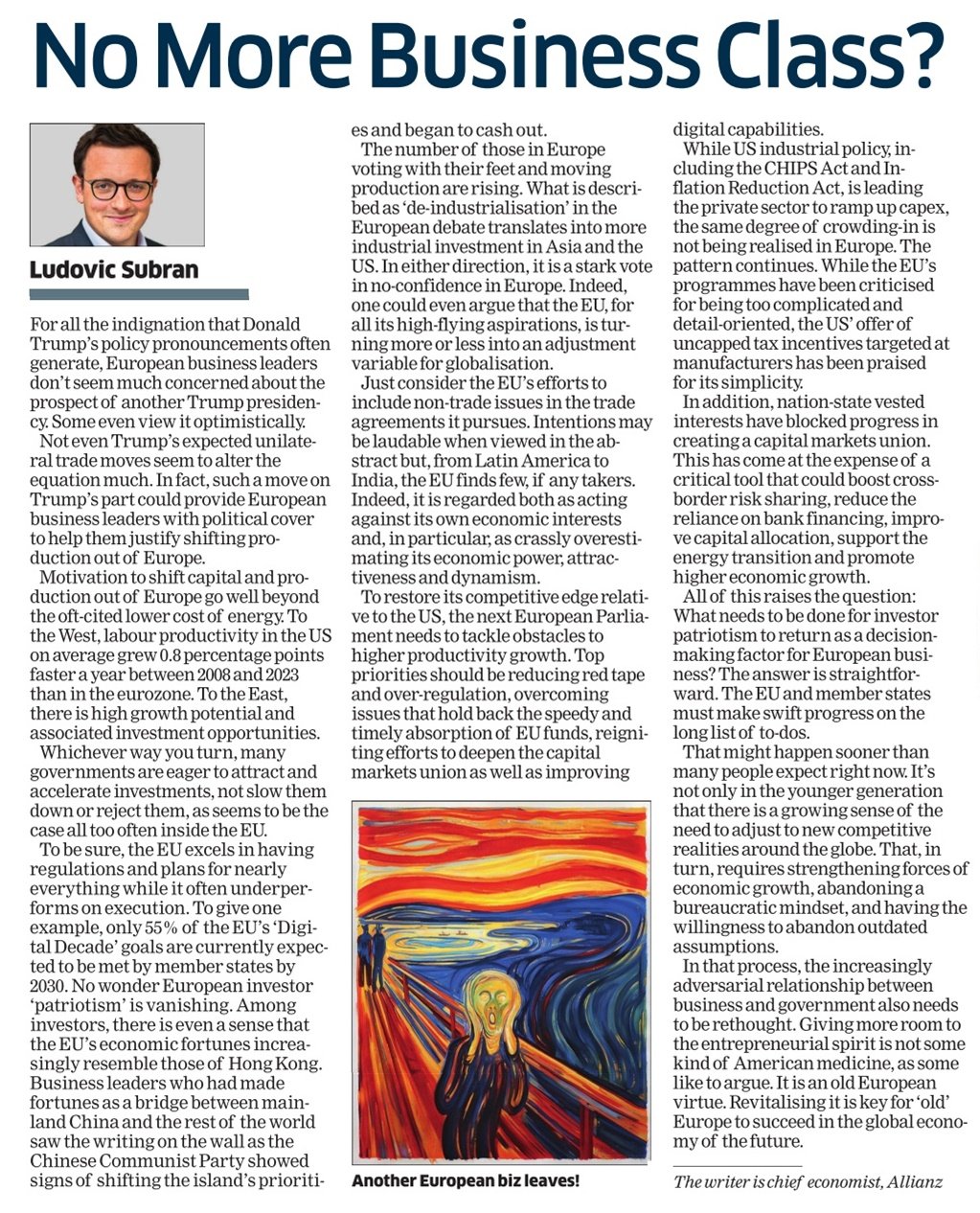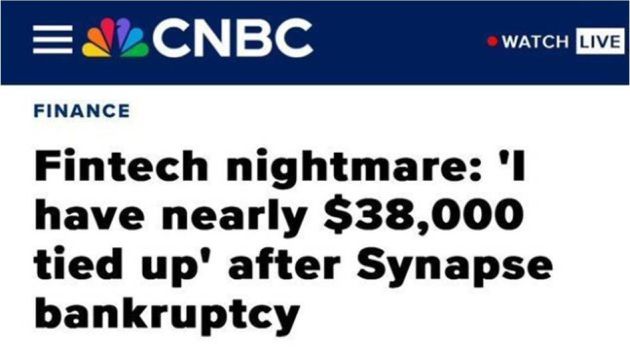To: editet@timesgroup.com
Subject: No More Business Class?
Dear Editor of Economic Times:
This has reference to the op-ed titled “No More Business Class?” by Ludovic Subran in today’s edition of Economic Times.
Having lived in several European countries for many years and observed the regulatory regime in the Continent up close, I totally agree with the author that “EU plans everything and executes nothing”.
Open Banking is a classical example. EU took over 10 years to finalize the PSD2 regulation underpinning Open Banking. In contrast, USA left the field open to market forces. Seven years after the launch of EU Open Banking, there are fewer than 10 million users for it whereas USA has amassed over 80 million users for automated savings, wealth management, stock trading, and other open finance apps during the same period. What’s more, while Open Banking regulations were being drafted in EU, many fintechs in the Continent spurned potential security vulnerabilities caused by the use of screen scraping and credential sharing by American fintechs and bragged that they (i.e. EU fintechs) would use the more secure API-based information sharing architecture. But, years later, the version of EU Open Banking in force does not outlaw these shortcuts. More in Open Banking: EU v. USA.
 To take another example, I recently saw tons of kudos messages sloshing around on social networks about the passing of a bill in EU Parliament to introduce an EU-wide crossborder realtime payment network. I asked around what happened to SEPA Instant Credit Transfer, a similar network that has already been around in the EU region for over five years. My business associates and ex-coworkers from the region told me that many countries in EU didn’t sign up for SCTinst, which is why it failed to go mainstream. I asked them whether the new reg would compel those countries to join the new Account to Account Real Time Payment network. I didn’t get any reply. So I took that as a no. When the previous A2A RTP scheme fizzled out due to lack of adoption, the marketer in me wonders how the new scheme will succeed without taking steps to remedy the root cause around GTM.
To take another example, I recently saw tons of kudos messages sloshing around on social networks about the passing of a bill in EU Parliament to introduce an EU-wide crossborder realtime payment network. I asked around what happened to SEPA Instant Credit Transfer, a similar network that has already been around in the EU region for over five years. My business associates and ex-coworkers from the region told me that many countries in EU didn’t sign up for SCTinst, which is why it failed to go mainstream. I asked them whether the new reg would compel those countries to join the new Account to Account Real Time Payment network. I didn’t get any reply. So I took that as a no. When the previous A2A RTP scheme fizzled out due to lack of adoption, the marketer in me wonders how the new scheme will succeed without taking steps to remedy the root cause around GTM.
Two’s not a trend (that requires three!), but I’m increasingly finding that EU regulations are written for the sake of regulation, and lack any intent to move the needle on the ground reality.
I’m also reminded of the following prediction I made seven years ago on Quora:
The traits that helped Germany produce great engineers in traditional fields of engineering could actually be liabilities in new fields. It’s not surprising that Germany hasn’t produced many leading software products, with SAP being the sole exception that proves the rule. With software playing a bigger and bigger role even in traditional products – e.g. autonomous cars – Germany will need to change a few things at the core of its engineering discipline it it expects to maintain its status as a global engineering powerhouse going forward.
My prediction has aged well, even if I say so myself!
It’s no skin off my back how EU regs operate since I no longer pay taxes in EU, but I can’t help getting the feeling that the region is suffering from a total loss of organizational memory / tribal wisdom, or too many sinecure bureaucrats, or both.
As an aside, I see some experts hold EU regs as a lighthouse for USA. If the SECs and FTCs pass EU-style laws in USA, I can bet that the American economy will become as moribund as EU’s, and the much-vaunted Asia’s Century will happen by sheer method of elimination!
Thanks and Regards.
KETHARAMAN SWAMINATHAN
13 May 2024
In case the op-ed referenced above is not available online or is paywalled, cf. following exhibit.




